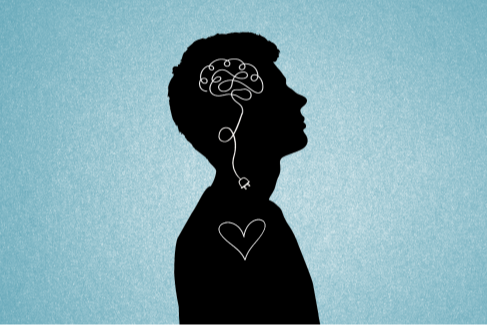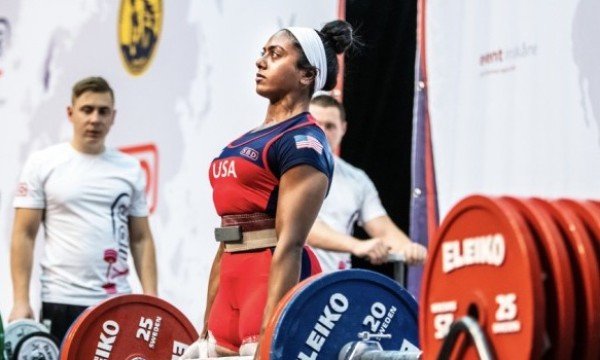
Meet Tamil singles looking for meaningful connections from Canada, USA, UK & more! Join here.

Have you ever heard (or felt) that Tamil guys just aren’t that great? I have met a lot of women who say they do not date Tamil guys, or brown men at all, often citing emotional unavailability and insecurity as key reasons. The interesting part was that I mostly heard it among other Tamils, predominantly women; Tamil guys are trash, not exactly dating or marriage material. At 30-years-old, these conversations are still a part of my social landscape. But is there more to this story? Let's delve deeper into this from a Tamil guy's perspective.
What defines the so-called “trash Tamil guy”, and how fair is this label? He's often described with traits that make him undesirable as a partner. He might be controlling, manipulative, jealous, immature or may not respect boundaries; he might be a cheater, or be physically or emotionally abusive; he might consider women to be inferior in some form or abide by traditional gender norms; or he may be emotionally unavailable. Among these traits, emotional unavailability stands out as a recurring theme. It's a complex issue that spans a range of behaviors, from lack of empathy to difficulty in expressing emotions. This trait, while subtle compared to more overtly negative behaviors like aggression or manipulation, significantly impacts relationships. Understanding emotional unavailability among Tamil men requires exploring various cultural and social dynamics.
For this article, I will focus on emotional unavailability (addressing everything would take a couple dozen pages). What creates the emotionally unavailable person? I can’t speak to all possible reasons, but there are dozens of influences that come into play that have much to do with what young boys are taught about being ‘real’ men, how men are represented in media, and the supposed emasculative effects of showing emotion. Of course, these are not excuses for harmful behaviour, but maybe it gives you a new perspective on this label.
The most significant early influence on why the emotionally unavailable Tamil guy might develop toxic traits, in my opinion, comes from how he’s raised. As most Tamil guys know, feelings and emotions aren’t really a thing in Tamil households. Depending on the level of emotional aversion that existed in the home, the young Tamil guy will very likely learn, from a very early age, that after a certain age he doesn’t have the same license to be as sad or emotional as he once did. One day, he might be having a bad day and cry or complain to his parents, only to suddenly be told that he’s not a whiny little kid anymore; he has to stop being weak and stop acting like a girl, and man up. If he has female siblings, he sees that they are given more leeway (for similar sexist reasons no doubt) to be emotional. But he can’t express his emotions the same way. The shame and judgment he feels as a result, along with his young and impressionable brain, begins to shut down the desire to share or talk about how he feels.
Accompanying this is the unfortunate reality that many Tamil boys are not expected to be as emotionally available, empathetic and compassionate as girls are expected to be. He has likely never been expected to be a listening ear for his family or sit beside his relatives and talk about his or someone else’s worries. Unlike his sisters or female cousins, he has rarely been expected to be present and caring. Responding with anger and aggression to frustrating situations may be seen positively by his family. He may have heard his grandma or uncle say “he’s a boy, of course he’s going to get angry. He just cares a lot”, or been praised for being “in control of his feelings” or appearing strong.
He also sees how his dad processes his feelings. If his dad never cries or seems sad, and instead throws objects, punches walls, screams or drinks, the young guy will slowly learn that this is how men are supposed to process their feelings. You don’t talk about them; instead, you display your feelings through anger and aggressiveness. It might seem like it should be obvious that this behaviour is toxic, but kids truly are extremely impressionable; if he sees this behaviour as normal, it will not seem nearly as destructive as it truly is. If strict gender roles are followed at home, he may similarly see this as normal.
Along with these lessons that the young Tamil guy may learn at home, rejection of emotions is another factor that affects his ability to be compassionate and empathetic. Almost every Tamil guy has a story of being upset or emotional as a kid and going to a parent or friend for help, only to be mocked, beaten or dismissed at home or at school (or both). As he gets older, he learns to internalise all his hurt feelings and act unaffected and uncaring, because what’s the point? If he says he’s sad, he’ll be laughed at or told to suck it up. Acting strong earns him respect. He learns to rationalise and logicize his feelings, and tell himself that nothing is a particularly big deal, possibly to the point where he can no longer recognise what he’s feeling.
What is my Identity? It's a question that we all seek to answer in our own ways throughout our lives. Each episode of Identity spotlights a different creative, some from the Tamil community and some from outside it, who will be chatting about how we take ownership of our narratives, art, politics and of course who we are. We hope to inspire you through their unique stories of seeking and finding Identity. Catch Season 1 below!
- Shakthi / Theatre, Intergenerational Trauma and Australian Tamil Identity
- Identity Podcast: Anuk/ Language, Grief and Tamil Community
- Maral/ Art, Belonging & Armenian-Iraqi-Canadian Identity
- Shuba/ Music, Feminism and Dual Identities
Alongside the positive reinforcement that he often receives, the role of media can’t be overlooked, whether it’s Tamil movies or Western media. It is truly crazy that even today, movies and shows portray true masculinity as being led by aggressive, dominant, stoic and violent behaviour. These portrayals, still as popular as ever, are especially common in Tamil movies. Emotional, sensitive, level-headed and kind men are also shown in movies, but they are often portrayed as being weak or naive; or, the emotional and sensitive man may be an undercover spy or a man with a dark past who secretly checks off all the macho boxes. Or the sensitive man may have to go through trauma that, by the end of the movie, has hardened him into a tough man of action who does not let something as pathetic as feelings get in his way, unless of course, it’s to be used in pursuit of more violence. There are very few Tamil movie male leads who allow themselves to feel, or express sadness that doesn’t turn to violence. Leading men in Hollywood are rarely much better. There’s no doubt that these influences give the emotionally unavailable Tamil guy more reinforcement to remain as he is.
And then, finally, the emotionally unavailable Tamil guy is older and starting to date. He’s been told and shown that emotion, sadness, insecurity and empathy are all very un-manly to express – and an un-manly man is, of course, not going to be very attractive to women. He may abide by the gender roles and coping mechanisms he saw as a kid. He has long ago shut down any inkling to talk about his feelings or hear the feelings of others without dismissing them or rationalising them away. If he’s asked to express a feeling or is told that he seems upset, he may say “no I’m just pissed,” or feel threatened. When arguments happen, the instinct to talk about his feelings is so far gone that he only feels a need to escape or explode. If he’s let down his partner or upset him or her, he may feel normal doses of sadness, shame or guilt, but he can’t say that, because he worries it’ll make him look weak or be thrown back in his face. A more self-aware guy might recognise that he wants to express a feeling, but he is terrified that doing so will lead to mockery. After all, this is what has always happened to him. He has not built the confidence or tolerance to allow himself to be laughed at, or be told that it is okay to be wrong or have difficult, vulnerable conversations. So he keeps everything to himself until he can’t keep it in any longer. He may turn to weed, alcohol or other substances; feel attacked or ashamed and lash out in anger or fear; or shut down and distance himself. He might think he is too damaged to bother changing; or in extreme cases, he may think this is simply how men are supposed to be.
There’s no doubt there are exceptions to all of this. Lots of guys have great families, positive influences or no experiences of bullying and can end up with any number of harmful ideas and behaviours. But these ideas of manhood are strong forces in society, and do a great deal to prevent men from being authentic, compassionate and vulnerable.
From his partner’s perspective, none of these internal dialogues or fears are visible. All they can see is the veneer of aloofness, dismissiveness, or anger. So what’s the lesson? That women and men should try to understand and accept such harmful behaviour? Definitely not. It is not anyone’s responsibility to “fix” another person. The lesson is that the idea of what a ‘man’ is needs to change. There is already a lot of positive movement towards this goal in popular culture; expressing vulnerability isn't a weakness but an embrace of true strength, a perspective that is gaining steam. Men need to learn that showing sadness or crying is completely normal; that those who tell them that crying and feelings are un-manly (whether they be men or women) are themselves insecure and afraid; and that being a man is not just about having the bravery to show up and be resilient, but also be open, vulnerable and a good human being.
Graphic by Sobica Vinayagamoorthy



























